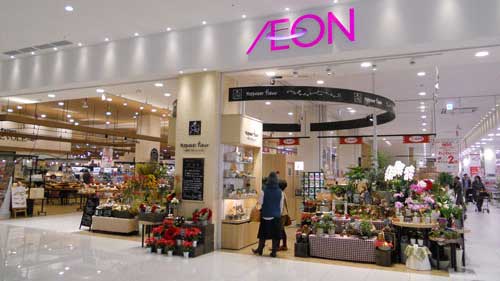Tariff cuts prompt new wave of Japanese firms
Japanese firms have begun to shift their investments to Vietnam’s trade and service sectors, amid a recent reduction of import duties.
A preferential import tariff, which began in April 2015 as part of the ASEAN-Japan Comprehensive Economic Partnership Agreement, will see over 3,200 tariff lines on Japanese imports reduced to zero percent.
This tariff will specifically focus on material goods, machinery, and electronic products.
Furthermore, under the ASEAN Trade in Goods Agreement (ATIGA) in the 2015-2018 period, many goods will become cheaper to import from other nearby countries than to produce domestically.
The reduction of tariff barriers has prompted Japanese businesses in Vietnam to reduce production and increase the import of goods sold in the domestic market.
Yasuo Nishitohge, general director of Aeon Vietnam, told VIR that the tax reduction will be beneficial for retail businesses. “The tax reduction will help Aeon diversify its products and reduce production costs to gain price competitiveness.”

Another Japanese retailer, Family Mart, affirmed that it would not withdraw from the Vietnamese market, although it previously sold its entire stake in 42 outlets to Thailand’s Berli Jucker (BJC), owned by billionaire Aswin Techajaroenvikul, which then set up a joint venture with Vietnam’s Phu Thai Group.
By the end of 2015, Family Mart plans to have 100 stores operating in Vietnam, with the figure reaching 800-1,000 stores by 2020, accounting for 30% of the local market share.
Tadahito Yamamoto, chairman and chief representative of Fuji Xerox, said that it plans to expand production in Vietnam by setting up a distribution centre here for export to the global market.
According to a survey by the Japan External Trade Organization (JETRO), in 2014, Vietnam licensed a total of 517 Japanese projects, with their total investment falling by 39.1% from 2013.
However, the number of projects in trade and service sectors increased sharply in number. JETRO predicts that Japanese firms will boost their outbound investment in trade and service sectors, amid the depreciation of the Yen against the US dollar and competitive advantages.
Recof Corporation, a leading M&A consulting firm in Japan, said that many Japanese businesses have shown interest in expanding operation in Vietnam. This corporation predicted that M&A deals on trade and service between Japanese and Vietnamese enterprises will strongly increase in the coming years.
According to statistics by the General Department of Vietnam Customs, Vietnam recorded a trade surplus of US$2.14 billion in 2014, the third consecutive year.
The country’s export-import turnover last year totalled US$298.24 billion, up 12.9% from 2013.
